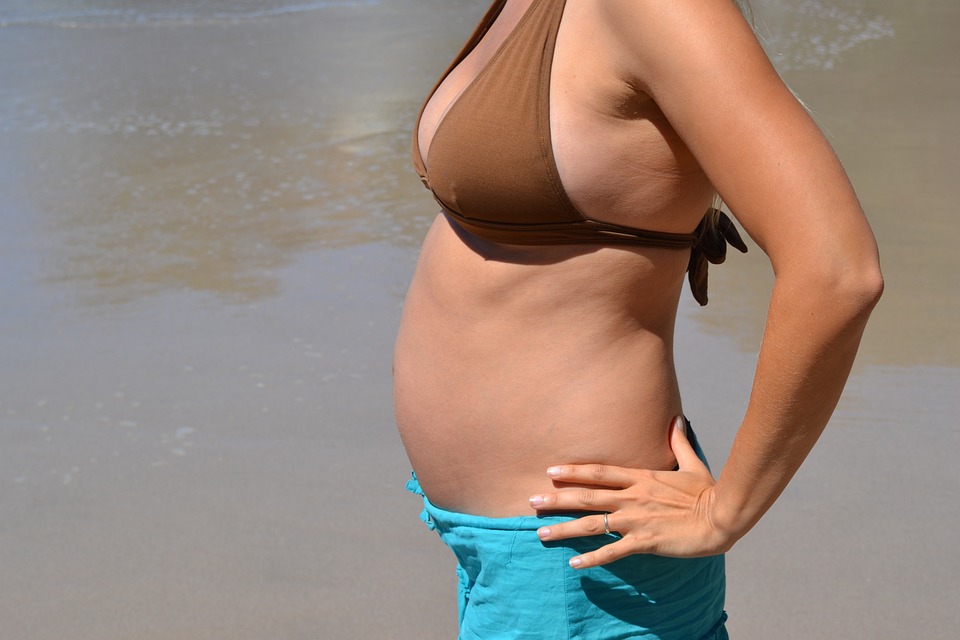
Pregnancy is a beautiful and miraculous time in a woman’s life. It is a period of growth, change, and anticipation as a new life is formed within the womb. With all the changes happening inside your body, it is important to fuel yourself properly to ensure the health and well-being of both you and your baby. Proper nutrition during pregnancy is crucial for the development and growth of the fetus, as well as for the health of the mother. In this article, we will discuss some nutrition tips for expectant mothers to help fuel their bodies for two.
1. Eat a Balanced Diet
One of the most important things you can do during pregnancy is to eat a balanced diet. This means consuming a variety of foods from all the different food groups to ensure you are getting all the nutrients your body needs. Make sure to include plenty of fruits, vegetables, whole grains, lean proteins, and healthy fats in your diet. Aim to eat a rainbow of colorful fruits and vegetables to get a wide range of vitamins and minerals. Consider incorporating foods like quinoa, sweet potatoes, and avocados for added nutrients and energy.
2. Focus on Nutrient-Dense Foods
During pregnancy, your body requires more nutrients than usual to support the growth and development of the fetus. Focus on consuming nutrient-dense foods that are rich in essential vitamins and minerals. Some nutrient-dense foods to include in your diet are leafy greens, nuts and seeds, eggs, fish, lean meats, and dairy products. These foods will help ensure you are getting the necessary nutrients to support a healthy pregnancy.
3. Stay Hydrated
Staying hydrated is crucial during pregnancy as your body needs more fluids to support the increased blood volume and to help with digestion. Aim to drink at least 8-10 glasses of water each day, and consider adding hydrating foods like watermelon, cucumbers, and oranges to your diet. Avoid caffeinated beverages and sugary drinks, as they can dehydrate you and provide empty calories.
4. Get Plenty of Protein
Protein is an essential nutrient during pregnancy as it is needed for the growth and development of the fetus. Make sure to include plenty of protein-rich foods in your diet, such as lean meats, poultry, fish, eggs, beans, lentils, and tofu. Aim to consume at least 70-100 grams of protein per day to support the needs of both you and your baby.
5. Take Prenatal Vitamins
In addition to eating a balanced diet, it is important to take prenatal vitamins to ensure you are getting all the necessary nutrients for a healthy pregnancy. Prenatal vitamins are specially formulated to provide the essential vitamins and minerals needed during pregnancy, such as folic acid, iron, calcium, and vitamin D. Talk to your healthcare provider about the best prenatal vitamin for you and make sure to take them as directed.
6. Limit Processed Foods and Sugary Treats
While it is okay to indulge in treats occasionally, it is important to limit processed foods and sugary treats during pregnancy. These foods are often high in empty calories, sugar, and unhealthy fats, which can lead to weight gain and nutrient deficiencies. Instead, focus on whole, nutrient-dense foods that will provide you with the energy and nutrients you need to support a healthy pregnancy.
7. Eat Small, Frequent Meals
During pregnancy, you may experience nausea, heartburn, and indigestion, which can make it difficult to eat large meals. Instead of trying to force yourself to eat three large meals a day, focus on eating small, frequent meals throughout the day. This will help keep your blood sugar levels stable and prevent you from feeling overly full or uncomfortable.
8. Listen to Your Body
Every pregnancy is different, and your nutritional needs may vary from one trimester to the next. Listen to your body and pay attention to any cravings or aversions you may have. If you are craving a certain food, it may be your body’s way of telling you that you need a specific nutrient. If you are experiencing aversions to certain foods, try to find alternative options that provide the same nutrients.
9. Stay Active
In addition to eating a healthy diet, staying active during pregnancy is also important for both your health and the health of your baby. Regular exercise can help improve circulation, reduce stress, and maintain a healthy weight. Aim to engage in low-impact exercises such as walking, swimming, prenatal yoga, or pilates to stay fit and healthy during pregnancy.
10. Seek Guidance from a Registered Dietitian
If you are unsure about what foods to eat or if you have any specific dietary restrictions, seek guidance from a registered dietitian who specializes in prenatal nutrition. A dietitian can help create a personalized meal plan that meets your specific needs and ensures you are getting all the necessary nutrients for a healthy pregnancy.
In conclusion, proper nutrition is essential for expectant mothers to fuel their bodies for two. By eating a balanced diet, focusing on nutrient-dense foods, staying hydrated, getting plenty of protein, taking prenatal vitamins, limiting processed foods and sugary treats, eating small, frequent meals, listening to your body, staying active, and seeking guidance from a registered dietitian, you can support a healthy pregnancy and ensure the health and well-being of both you and your baby. Remember that every pregnancy is different, so it is important to consult with your healthcare provider to determine the best nutrition plan for you. By following these nutrition tips, you can fuel your body for two and embark on a healthy and happy pregnancy journey.








